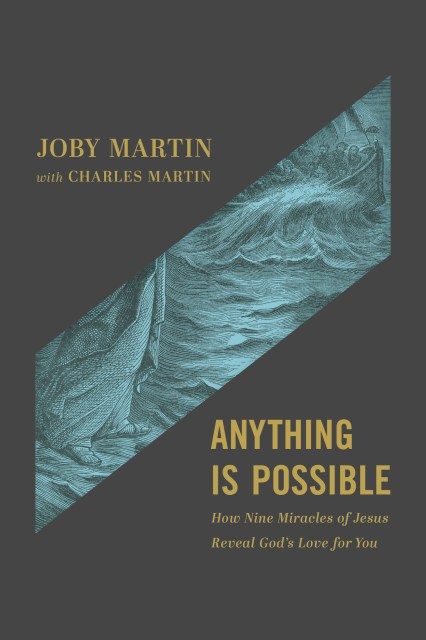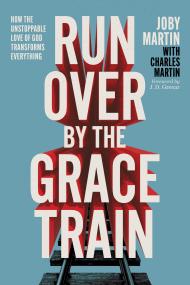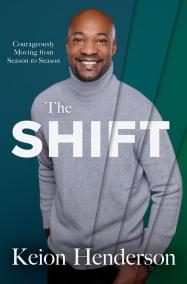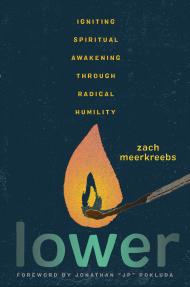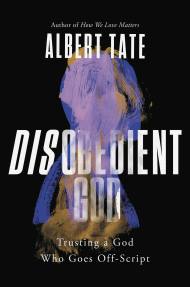By clicking “Accept,” you agree to the use of cookies and similar technologies on your device as set forth in our Cookie Policy and our Privacy Policy. Please note that certain cookies are essential for this website to function properly and do not require user consent to be deployed.
Anything Is Possible
How Nine Miracles of Jesus Reveal God's Love for You
Contributors
By Joby Martin
With Charles Martin
Foreword by Matt Chandler
Formats and Prices
- On Sale
- Mar 21, 2023
- Page Count
- 256 pages
- Publisher
- FaithWords
- ISBN-13
- 9781546001713
Price
$11.99Price
$15.99 CADFormat
Format:
- ebook $11.99 $15.99 CAD
- Audiobook Download (Unabridged) $27.99
- Trade Paperback $19.99 $25.99 CAD
- Trade Paperback $13.99 $18.99 CAD
This item is a preorder. Your payment method will be charged immediately, and the product is expected to ship on or around March 21, 2023. This date is subject to change due to shipping delays beyond our control.
Buy from Other Retailers:
From mega-church pastor Joby Martin, an accessible yet theologically-rich look at nine miracles of Jesus and what they teach us about the miraculous power available to every believer.
Miracles are impossible. They defy explanation. They can’t be real. And yet, miracles surround us every day. Where we face something that we can’t fix and run out of options. Where the limited and finite ability of man ends and unlimited and infinite will of God begins. Where what is impossible with man is possible with God.In Anything is Possible, Joby Martin, bestselling author and Lead Pastor of The Church of Eleven 22, examines nine miracles of Jesus—the miracle at the wedding of Cana, the story of the cripple at the pool of Bethesda, the feeding of the 5,000, the raising of Lazarus—and shows how each teaches us something unique about how God wants to relate to us.
Written with New York Times bestselling author Charles Martin, Anything is Possible is an insightful and spiritually rich look the miracles of Christ, and how the greatest miracles of all changed everything. Ultimately, he encourages readers that God still does miracles today, that believers have access to the incredible power that raised Jesus from the dead, and, ultimately, reminds us not to seek miracles themselves, but the one who performs them.
-
“Insightful. Expectant. Illuminating. Anything is Possible offers unshakeable hope for anyone who is walking in the midst of seemingly hopeless situations. Joby Martin reminds us that where our ability ends, God’s infinite ability begins. This is a message full of foundational truth, life-giving hope, and sustaining encouragement for every believer.”Louie Giglio, Pastor of Passion City Church, Founder of Passion Conferences, Author of Don't Give the Enemy a Seat at Your Table
-
“I don’t know of another way to say it: Joby’s faith inspires me. Throughout the years, I’ve learned from his preaching, been entertained by his wit, benefited from his pastoral wisdom, and now, in Anything is Possible, I am inspired by his faith. You can sense the closeness of the Jesus of the Gospels reverberating through these pages, ready to extend the same miracle-working power to all who will receive it. Joby is one of our generation’s greatest communicators. Joby’s preaching has changed the lives of thousands; you’ll be changed as you read this book.”J.D. Greear, Pastor of Summit Church and author
-
“We all seem to be in need of a miracle, now more than ever. But when we ask for a miracle, do we actually believe? Not only that God can do it, but that He WILL do it… for us… today? With the skill of a master communicator and the heart of a devoted pastor, Joby passionately guides us back to the basic of our faith; that Anything is Possible.”Kadi Cole, executive leader, advocate, and bestselling author of Developing Female Leaders
-
“If the tomb is empty, then anything is possible… What if we really believed that? Joby Martin challenges us with this question in his second book Anything Is Possible and walks us through the scriptures to point us to the life changing truth of Jesus on the cross.”Tim Tebow, 5 time New York Times Best-Selling Author, Founder of the Tim Tebow Foundation
-
“Joby Martin’s second book, Anything is Possible, will challenge and encourage people from all walks of life. Joby shares nine powerful miracles of Jesus, as well as inspiring stories from his own life, to bring encouragement and hope. Joby is passionate about pointing people to Jesus and helping them find hope in the empty tomb and our God who is greater than our circumstances. This book is a must-read!”Phil Hopper, Pastor, Abundant Life Church, and author
-
“If you’re ready to take your faith to the next level, Anything is Possible is a must-read. Pastor Joby Martin goes to the heart of the issue, exploring how Jesus’ miracles have the power to change our lives today!”Dave Ferguson, Lead Pastor - Community Christian Church and author of B.L.E.S.S. 5 Everyday Ways to Love your Neighbor and Change the World
-
“At a time when doubt seems to be looming. Dreams are getting smaller and hope seems to be fading. Joby and Charles Martin come and remind us in this power packed, hope filled book, that anything is possible. So if you've been looking to get lifted, if you've been longing to hope again and if your dreams can stand to get a little bigger. Prepare your heart to be reminded that because the tomb is empty, anything is possible.”Albert Tate, Pastor of Fellowship Church and author of How We Love Matters
-
“Joby Martin has a unique ability to make the deeper things of scripture simple and approachable. His biblical insights, practical applications, and real-life illustrations turn stain-glass concepts into everyday realities.”Larry Osborne, Pastor and Author, North Coast Church
-
“Because I have spent my life serving children, I tend to view things through their eyes. So when I read Pastor Joby’s book Anything Is Possible, I immediately thought: children get that. But the older we get, the further we drift away from believing in possibility. Jesus never told a child to grow up, but He did tell grownups to “grow down” when He said, “Unless you change and become like little children, you will never enter the kingdom of heaven” (Matt. 18:3). Let this fresh and insightful walk through Jesus’ miracles via the wit and wisdom of master storyteller Joby Martin rekindle your childlike faith in the Miracle Worker. Whatever your impossible is, give God the chance to change it to possible.”Dr. Wess Stafford, President Emeritus, Compassion International, author of Too Small to Ignore: Why the Least of These Matter Most and Just a Minute: In the Heart of a Child, One Moment Can Last Forever
-
“Do you (really) believe in miracles? In Joby Martin’s gripping new book, Anything Is Possible, he challenges us with a clear and compelling picture through nine miracles of Jesus, of how our lives can be changed for good!”Dan Reiland, Executive Pastor, 12Stone Church and author of Leadership Alone Isn’t Enough
-
“If you want your life to stay the same, do NOT read this book. But if you're ready for your mind to expand, dive into Anything Is Possible. In a world that seems to be becoming more and more linear and clinical, Joby gives readers a fresh look at just how much is supernaturally possible.”William Vanderbloemen, Founder and CEO, Vanderbloemen
-
“With the skill of an exegete and the travail of an expositor, Joby Martin gave us If The Tomb Is Empty. Now with the faith of a pilgrim and the heart of a pastor, he gives us insight into the certainty that with the power of Christ anything Is possible. Joby looks at the miracles of Jesus, not just to find something spectacular about which to write, but to point us to something much bigger than our issues. This must-read book captures the truth of the ages that with Christ - Anything Is Possible.”Mac Brunson, Pastor Valleydale Church
-
“An astute reader must always be cautious about a book that deals with miracles. Many of them lead people to desire the miracles alone without giving any regard to the giver of said miracles. Anything is Possible isn't just another fluffy book about miracles that depicts God as some sort of a cosmic genie. This is a blistering siren directing image bearers to the power of a just and merciful Father God. Apparently, If the Tomb is Empty was just the appetizer. Now, it's time for the main course.”Kyle Thompson, Founder, Undaunted.Life, Host, Undaunted.Life: A Man’s Podcast
-
“Joby Martin writes like he preaches and that means that this book is all about Jesus…but there’s a unique anointing in these pages that’s surprising. Joby masterfully unpacks nine miracles Jesus performed when He walked the earth and then shows us how, because of the resurrection, anything is possible for us right now. I truly love this book and you will, too.”Clayton King, Pastor and Overseer, Newspring Church, Founder, Crossroads Camps and Conferences
-
“If you’re feeling disappointed from putting your hope in things that have let you down, read this book. I found my own heart reorient towards the things that are most true, resulting in an inner strength and effervescent joy that increased with each turned page.”Ryan Kwon, Lead Pastor, Resonate Church
-
“Joby possesses a theologian’s mind, a comedian’s timing, a preacher’s fire and a pastor’s heart. I love that he has created a resource helping us see how the miracles of Jesus intersect our lives today.”Ben Stuart, Pastor of Passion City Church DC, Author of Single, Dating, Engaged, Married and Rest & War
-
"Joby Martin has the gift of clarity and purpose. His teaching, and now his writing, cuts through the clutter to what matters most—and it pushes you to move. He is an inspiring teacher, a motivating leader and a good man. I'm honored to call him a friend."Brian Tome
Newsletter Signup
By clicking ‘Sign Up,’ I acknowledge that I have read and agree to Hachette Book Group’s Privacy Policy and Terms of Use
